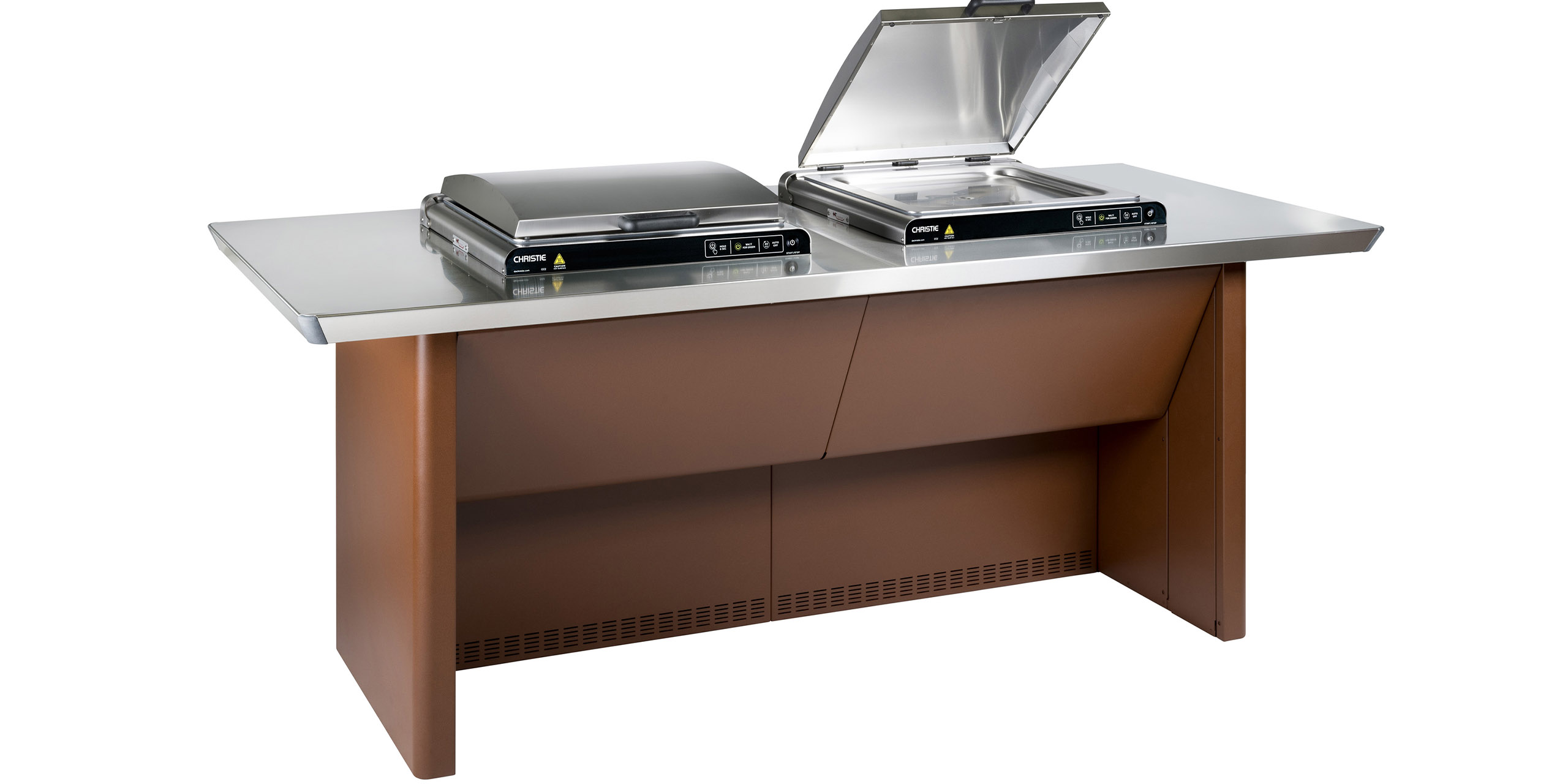The ICON is designed with the user experience in mind. The cabinet’s distinctly modern design blends seamlessly into any architecturally designed public space or stand out in an urban landscape, depending on the colour and finish option. The form is explicitly predicated on the functionality, including the need for universal access and ease of fabrication, transport, cleaning and maintenance.
The oversize benchtop offers ample food preparation space. By turning the self-contained Christie cooktops in opposing directions around, it also leaves 1.5m space between users. All the cabinet panels and parts are easily removable and replaced on-site if damaged. The waste collection tray is raised off the ground, improving workplace safety for maintenance persons.
The ICON cabinet has no sharp edges or protrusions. All fixings are accessible only from inside the cabinet through a lockable door to reduce the risk of vandalism and injury. Unique plastic corner inserts are incorporated into the benchtop for improved safety.
Combined with the angled benchtop profile, it reduces the potential impact on children hitting corners. Small, slimline rectangular perforations are used, instead of ventilation louvres, to vent the cabinet of heat, avoiding finger entrapment and possible exposure to sharp steel edges. A raised waste container reduces back strain when emptying the waste oils.
The design team focused on reducing the product's carbon footprint wherever possible throughout the design process. All materials, parts, and components are procured from local Australian suppliers, and finished cabinets are shipped flat-packed for ease of transport and site access. These initiatives reduce emissions and the overall product carbon footprint.
The flatpack design, 60% recycled all-stainless-steel content, and use of a single recyclable material allow the cabinet to be easily disassembled and transported to a recycling facility at the end of its design life

